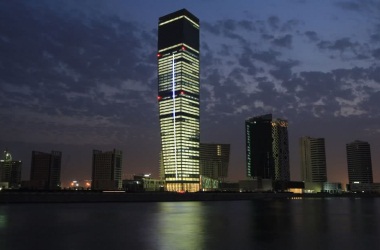
Sales of LED lighting solutions in the UAE are expected to increase significantly due to restrictions on the import and sale of incandescent lamps for use in residential areas.
New regulations are expected to result in substantial financial savings of nearly US$200 million (£120 million) per year on energy bills for the region and to reduce carbon emissions equivalent to 165,000 cars off the road per year.
Last month, Lighting reported that the UAE was leading the way across the Middle East in terms of lighting standards and legislation. As of 1 July 2014, it began phasing out inefficient lamps and regulating others, including implementing recycling and disposal laws.
The sale of standard incandescent bulbs in the UAE will be prohibited from 31 December 2014, as per the directives of the Emirates Standardization and Metrology Authority (ESMA).
George Bou Mitri, GE Lighting's general manager for the Middle East, Africa and Turkey, said the move by the UAE to phase out incandescent lamps reflects the long-term vision of the government to promote sustainable development.
"Electricity for lighting accounts for nearly 20 per cent of global power consumption and close to six per cent of worldwide greenhouse gas (GHG) emissions. The shift towards efficient lighting solutions will help reduce emissions by half," he said.
"Phasing out energy-inefficient lighting is one of the most effective and economical ways to reduce carbon emissions, while strengthening energy use efficiency and protecting the environment. The UAE's move will thus be a benchmark for the region, which is currently placing the highest emphasis on sustainability initiatives."





